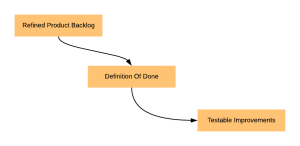— May 8, 2018

LUM3N / Pixabay
I have a bad habit of overloading my work schedule to the point where I almost can’t keep up. I’m my own worst enemy when this happens. Like many other ambitious workers, I have goals and want to take on the world all while being super productive.
Recently, I’ve realized that piling too much on your plate can actually have some negative effects. It leads you to start multi-tasking and when you focus on multiple tasks, you could wind up getting nothing done at the end of the day. Plus, the stress of it all is not good for your mental or physical health.
The solution? Let’s stop making ‘busy’ a badge of honor and praising each other for having jam-packed schedules. Let’s start to focus on quality over quantity and start with these 4 tips to help you stop overloading your work schedule.
Set Realistic Expectations
Having high standards and expectations for yourself can be a good thing so long as you don’t take it to the extreme. I’ve definitely been guilty of placing the weight of the world on my shoulders or setting goals to accomplish 20 things in just one day.
Realistically, it didn’t work out because I only had about 5-6 hours to complete all the tasks. When you set unrealistic expectations, you can easily get burned out or beat yourself up for not meeting your self-imposed deadlines.
Instead, focus on prioritizing your work tasks and giving yourself a realistic time frame to complete them. Start timing yourself during the workday and be honest about how much time and energy it’s going to require to do certain things.
Narrow Down Your Mission
If you consider yourself a workaholic or a perfectionist who just loves crossing items off the to-do list, realize that all work is not meaningful work.
One of the reasons why you may feel so under pressure is because you’re taking on a ton of tasks that don’t align with your mission and vision. Having a clearly defined mission will allow you to set specific goals. Once those goals are set, you know what you’re shooting for each day.
If a task or responsibility doesn’t align with those goals whether it’s a meeting, client project, or partnership opportunity, why would you pack it into your schedule? Try not to get shiny object syndrome and try to focus on too many professional goals at once. Also, outsource the tasks that are time-consuming or involve typical daily admin work.
Say No
Once you set realistic expectations and narrow down your mission, it will be much easier to say no to people and opportunities that don’t align with what you need or want.
Take email for example. How many emails do you receive in 1 day? If you responded to every message and opportunity with promptness, how much time would it take you? This one task alone would fill up your entire day.
Again, this is why it’s important to prioritize and focus if you want a clear and organized schedule. Realize you can’t do everything and you shouldn’t be expected to.
Sometimes it’s hard to say no more often but after a while, you will feel more comfortable with politely declining requests and opportunities that aren’t in your best interest.
Raise Your Rates
One of the most common reasons why may be addicted to overloading your work schedule is because you see no other option. You need to work to support yourself but you should also work smart over working harder.
If a lower income is keeping you chained to your workstation each day, it’s time to increase your rates or ask for a raise. When you earn more money or develop additional streams of income, you can free up some of your time and work less and more efficiently.
Odds are, you’re doing one or more of these things mentioned above if you always feel short on time throughout the workday. Make a conscious effort to acknowledge and address your issues so you can stress less and feel more confident about your schedule.
Business & Finance Articles on Business 2 Community
(63)
Report Post






